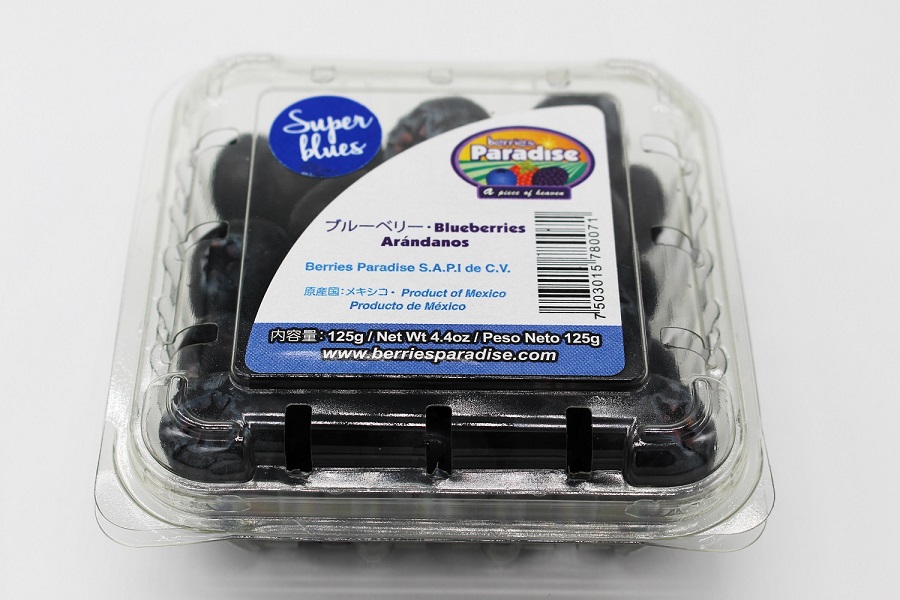Berries Paradise sends Mexico's first blueberry shipment to China

Following a successful visit from Chinese inspectors in May, the Mexican industry has now shipped its first blueberries to the East Asian country as of yesterday thanks to a airfreight shipment from Berries Paradise. 
In line with a protocol approved in late 2016 for fruit from the states of Michoacán and Jalisco, Berries Paradise sales manager Carlos Madariaga told Fresh Fruit Portal the trial shipment was exported to Shanghai.
The company sent two pallets, or 210 boxes, and is expected to send 35,000-40,000 boxes over the remainder of the season.
"This is an experimental shipment to know what we'll find next season. We have a reference in what we've done with Mexican raspberries and blackberries in China, however this is the first experience in blueberries - the inspections are very rigorous and demanding from China and that limits us a bit currently," Madariaga said.
He said Berries Paradise and other companies certified for China had the capacity to send volume via seafreight, but varieties could be an issue.
"The most produced variety in Mexico is Biloxi, which is not one of the preferred varieties for Chinese consumers - it's flavor is not so much to the Chinese taste and that reduces possibilities for growers," he said.
"I believe other varieties that can have the size and sweetness the market is looking for could have better acceptance, but they are for more of a premium market." 
For this reason Berries Paradise has been trialing the variety Sofia in its first shipments, as according to the executive it is very sweet with sizes between 17-22mm.
"This variety developed by the Fall Creek breeding program is exclusive [in Mexico] for Berries Paradise. I believe we have the perfect variety to do the first season in China because it meets all the requirements that the market demands," Madariaga said.
"With these small shipments we want to be sure of the variety we're betting on - and we believe it is ideal for the market. It really is. If everything arrives in optimal condition and are to the liking of customers, then we'll be able to make better projections for the next season.
"We want to make it visible that Mexican blueberries are available, that they are of excellent quality and that they can compete like-for-like with Peruvian and Chilean blueberries."
Fall Creek's Cort Brazelton described the event as a milestone, offering his congratulations to the company and Mexican industry representatives for their efforts in opening up the Chinese market.
"As a member of the Mexico blueberry industry we're thrilled that Mexico can establish this supply relationship with China and congratulate [industry association] Aneberries on the hard work done on behalf of the industry, as well as Berries Paradise, for bringing blueberries to the world and China," Brazelton said.
Competition with local production
China is currently in the peak of its domestic blueberry season, which reinforces Madariaga's belief that it's best to send premium varieties with large sizes. 
"There is a small price differential considering blueberry sizes," he said.
"We believe Mexican blueberries are of very good quality and believe they can get much better prices than blueberries coming from other origins."
The big competitive difficulty however for Mexico is the fact its competitor Chile has a free trade agreement (FTA) with china and therefore has zero tariffs, while Mexico has to pay a 25% import tax.
"This 25% tariff is a great challenge for the industry, which could be a commercial disadvantage but we believe that if we go with a good product we could have positive results."
He said the Mexican blueberry season finished between late July and late August, but peak production was between January and April creating a good niche between the end of the Chilean season and the local deal.




































